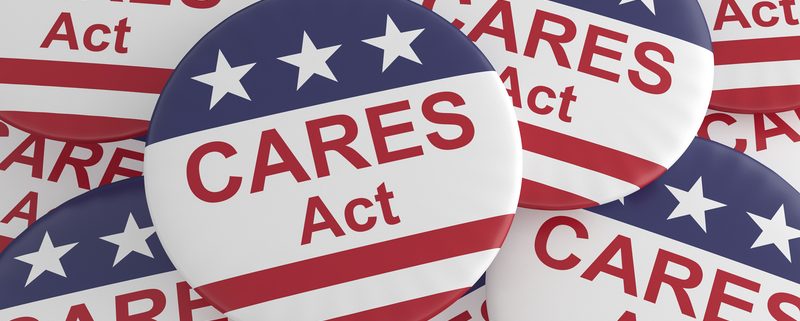What the CARES Act Means for Self-Directed IRA Owners
The rules just changed. COVID-19 has been a game-changer in many ways—to our way of life, to the way we invest, to the way we think about the economy. But with recent legislation, Congress has made it possible to think about your IRA differently, too. The CARES Act is the major legislation passed that will not only affect just about every individual in the United States but could have special meaning to those with Self-Directed IRAs. Here is what you need to know about the CARES Act—and how it might impact you:
What is the CARES Act?
The CARES Act stands for the Coronavirus Aid, Relief, and Economic Security Act. Its legislation aimed at assisting with funding efforts for dealing with the COVID-19 pandemic, as well as providing economic relief for individuals and small businesses who are impacted by the pandemic. At this point, that means just about everyone.
According to the CARES Act summary, the major provisions of the bill include:
- Establishing and providing funding for bridge loans. Many of these loans are designed to hold small businesses over to help them hold on to employees during the age of social distancing.
- Additional funds for grants, as well as “technical assistance,” which may mean that some small businesses might be able to look into new funding sources.
- Economic stimulus for individuals and families, with up to $1,200 for each individual and an additional $500 “per qualifying child.”
- Rules for tax relief, such as delaying “due dates for employer payroll taxes and estimated tax payments for corporations.”
To give you an idea of just how comprehensive this legislation is, this is just a sample of the economic effects that the CARES Act will have. But most relevant to the Self-Directed IRA is what the summary calls “special rules for certain tax-favored withdrawals from retirement plans.” This is where the Self-Directed IRA may enter the picture.
What Can People with Self-Directed IRAs Do Under the CARES Act?
There are a few issues raised by the CARES Act that has flipped the world of Self-Directed IRAs upside-down for the time being:
- Required Minimum Distributions. Also known as RMDs, these are the distributions you are required to take out of a retirement account after reaching a certain age. But as Congress acknowledges that the stock market may have dropped during this period of economic turmoil, the legislation suspends RMDs for 2020. This only applies to those who have reached the age where RMDs kick in. So, for those retirees who have planned on RMDs kicking in by a certain age, this age has essentially been pushed back if you turn that age during this pandemic.
- Retirement distributions. According to TheStreet.com, “The CARES Act has created the ability for individuals to withdraw up to $100,000 from retirement accounts such as a 401(k) or an IRA account in total without having to pay a 10% penalty, if they are under age 59½, as long as the funds are repaid to the account within three years.” In other words, people can turn to their Self-Directed IRAs—or any IRAs, really—for emergency funds.
Having a Self-Directed IRA does not mean that you are required to take every action now allowable. For example, just because you can take a penalty-free distribution does not mean you are expected to. However, it is important to know the rule changes thanks to the CARES Act—and to watch the timeline to make sure you know when things get back to normal.
Interested in learning more about Self-Directed IRAs? Contact American IRA, LLC at 866-7500-IRA (472) for a free consultation. Download our free guides or visit us online at www.AmericanIRA.com.









